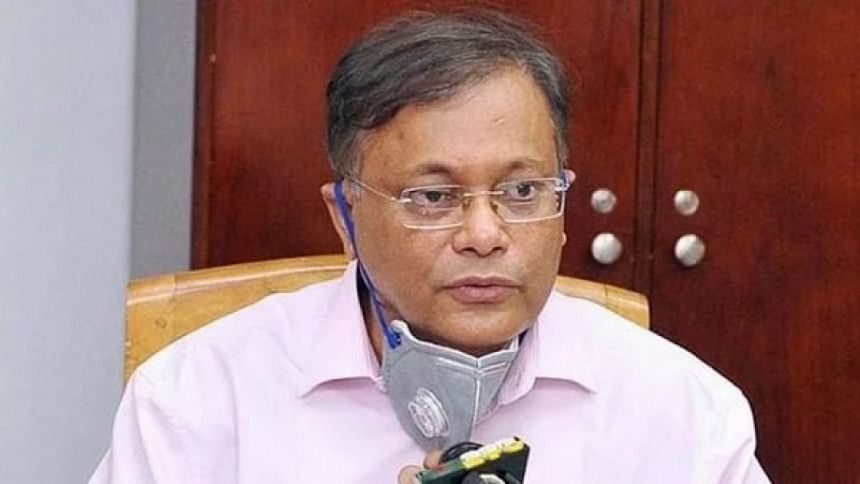Amnesty, TIB, RSF have no credibility in Bangladesh, says Hasan Mahmud

Information and Broadcasting Minister Hasan Mahmud today came down heavily on Amnesty International, Transparency International Bangladesh (TIB) and Reporters without Borders (RSF) for what he called their "biased take on human rights, press freedom and corruption in Bangladesh".
"These organisations have lost their credibility because of their partiality against Bangladesh," Hasan told members of Overseas Correspondents Association Bangladesh (OCAB) in reply to a question.
He said that the Bangladesh branch of Transparency International (TIB) issues statements like a political party instead of any research on an issue.
In support of his criticism, the minister cited a couple of recent examples such as TIB's statement against the railway minister on the ticketless travel by three of his relatives and allegation of corruption in the treatment of Covid-19 patients in Bangladesh.
Hasan said TIB's allegation of plundering about Tk 23,000 crore on Covid vaccines was "baseless".
Turning to the Amnesty International, the information minister said it was silent when BNP launched a petrol bomb campaign against the government in the name of agitation. It, however, was vocal against the trial of the war criminals in Bangladesh.
"This is how Amnesty International has lost its credibility here," he observed.
The minister once again rejected the latest Press Freedom Index published by Paris-based RSF (Reporters without Border) in which Bangladesh slipped 10 notches to 162 among 180 countries.
How can one trust an organisation which places Bangladesh behind even Afghanistan, not at all known for press freedom and security of journalists, he asked.
Responding to another question, the information minister said Bangladesh Press Council and Press Institute of Bangladesh (PIB) have been asked to prepare a database of journalists in the country.
This, he said, is aimed at identifying the genuine journalists so they get security in carrying out their work and keeping their jobs.
When done, the proposed database will also leave out those who are not journalists at all.
Hasan reiterated that the Digital Security Act (DSA) has been formulated for the overall security of the people from digital harassment and assaults on their dignity and privacy.
"This is absolutely not against journalists," he reaffirmed though admitting abuses in some cases.
He said there have been some abuses of the law against journalists and the government acted to stop it.
No case under the DSA can be filed now without permission from the police and no journalist can either be arrested in sweeping action, he said. "The interests of journalists are being protected," he said.

 For all latest news, follow The Daily Star's Google News channel.
For all latest news, follow The Daily Star's Google News channel. 











Comments